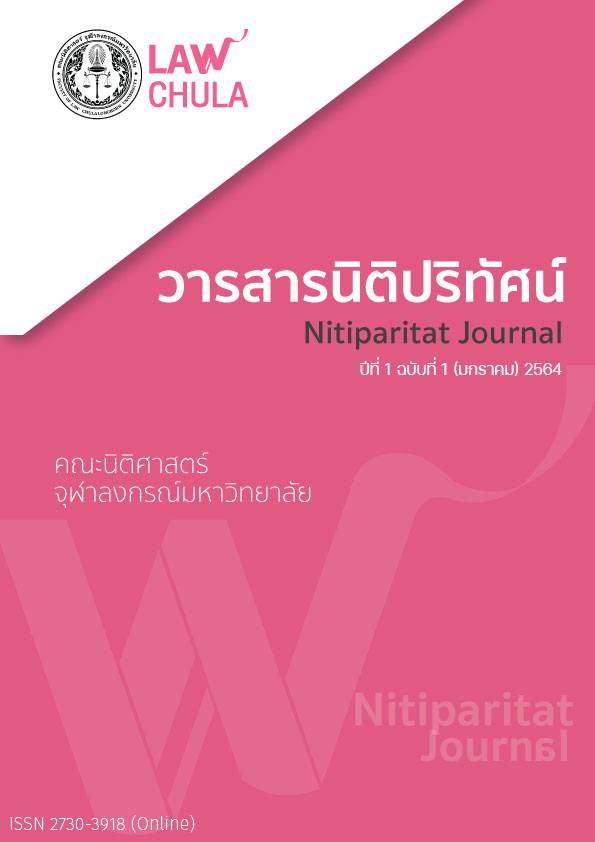The Admissibility of Electronic Evidence
Keywords:
evidence, electronic evidence, the admissibility of evidenceAbstract
The advent of the internet era has turned the history of humankind upside down, as it is considered to be the greatest change that human has ever encountered after the industrial revolution in the 17th century. Obviously, most of human activities nowadays such as the financial transactions, as well as the channels of communication were taken place online rather than the physical world. This drastic disruption, not unexpectedly, also causes huge impacts on the judicial proceedings, since the evidence currently presented in the court trial were transformed to the electronic evidence rather than the ordinary legal documents. Consequently, the introduction of electronic evidence brings the judges some fundamental questions regarding the admissibility of the evidence, the exclusionary rules and the weighing of evidence. This article will analyze the Supreme Court Decision no.6757/2560, which is a typical decision involving the issue of the admissibility of electronic evidence in order to address these new concerns.
References
Downloads
Published
How to Cite
Issue
Section
License
Copyright (c) 2020 Kraiphol Aranyarat

This work is licensed under a Creative Commons Attribution-NonCommercial-NoDerivatives 4.0 International License.
The manuscript is original, does not contain plagiarism, and does not infringe any copyright.



